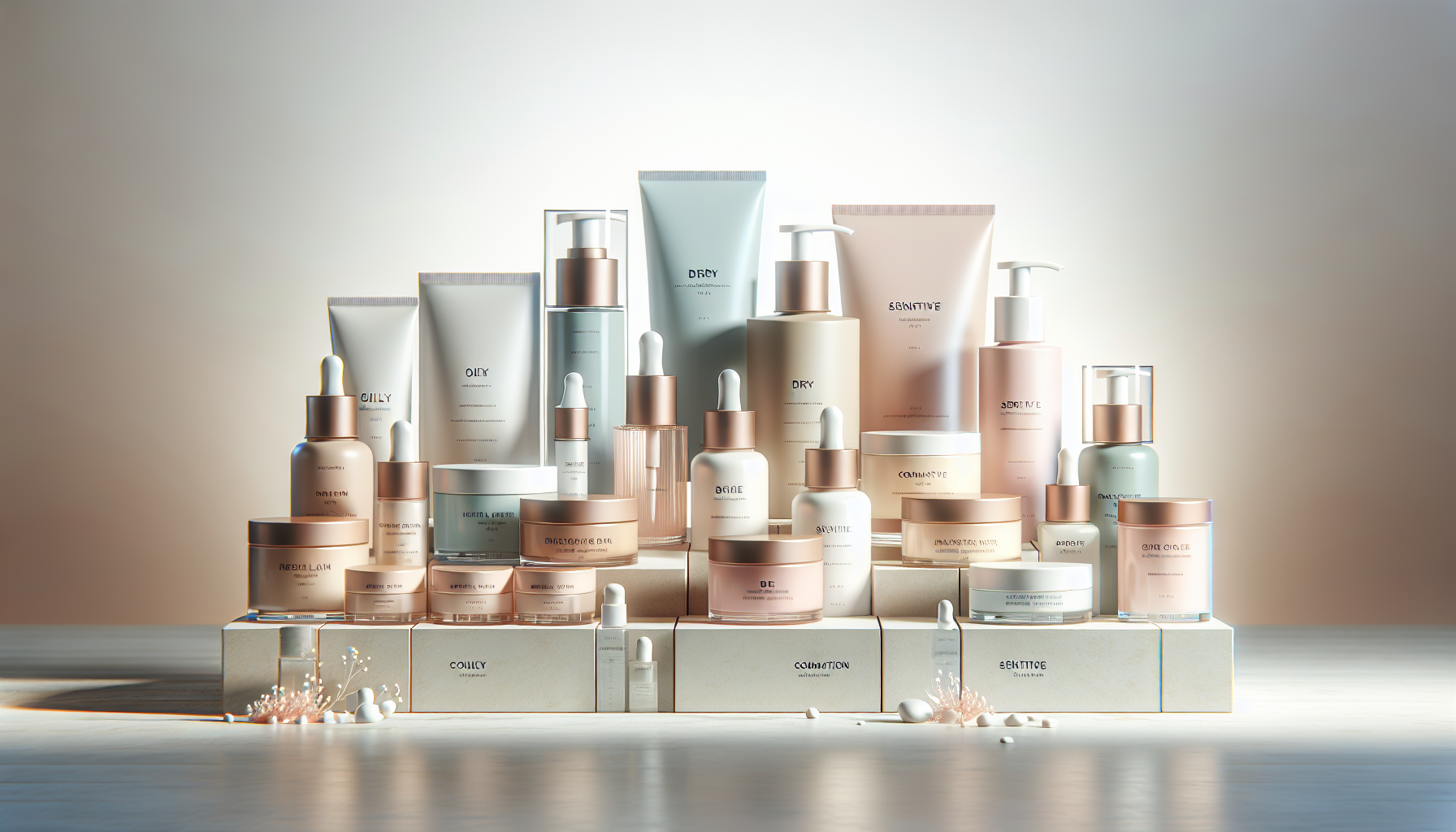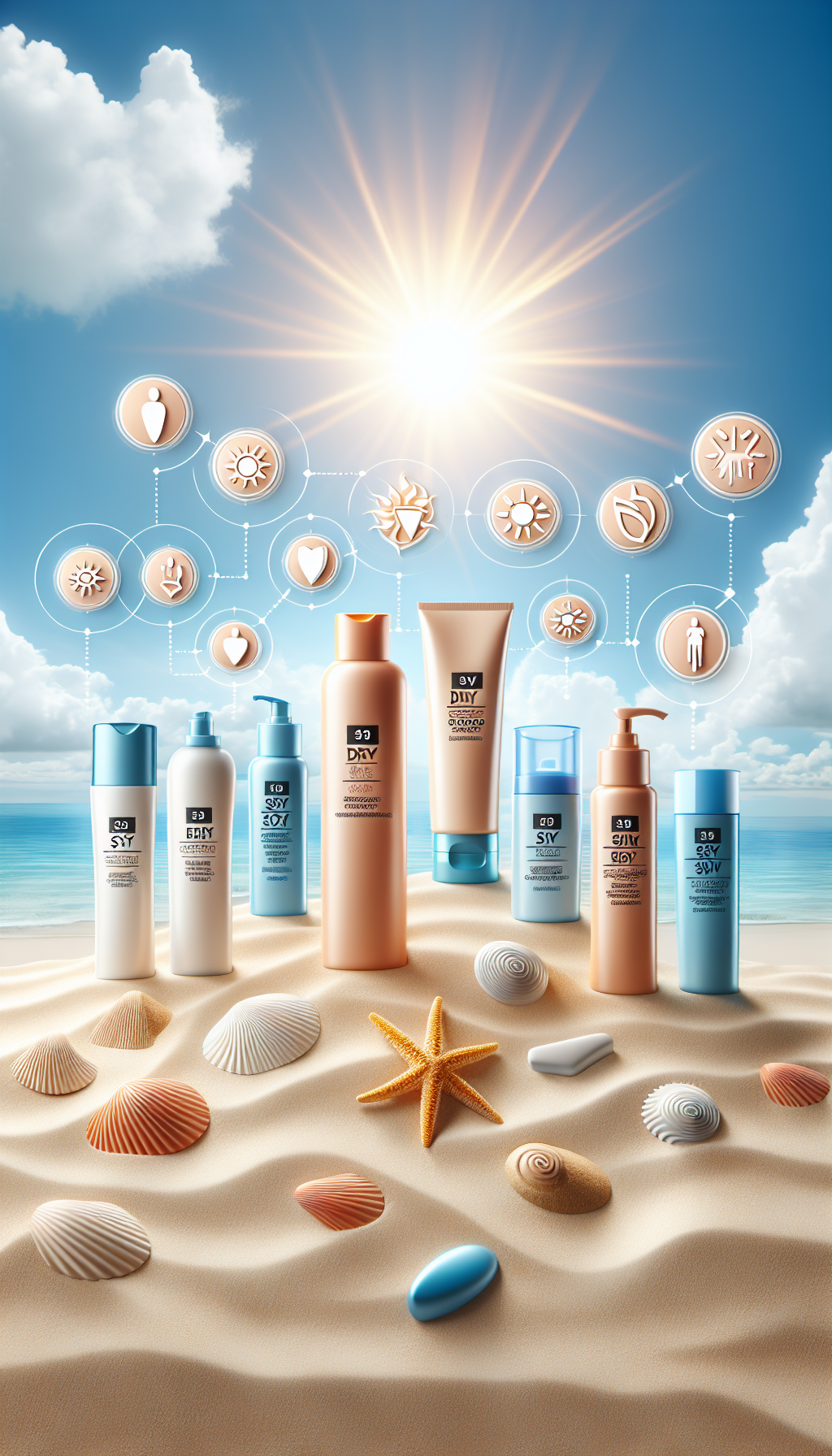Navigating the world of skin care can be a daunting task, especially when trying to find products that match your skin type and address your specific concerns. The secret to maintaining a healthy and radiant complexion lies in understanding the unique needs of your skin and selecting the right products accordingly. This comprehensive guide will help you make informed choices about the skin care products that are best for you.
Understanding Your Skin Type
Before diving into the vast array of skin care products available, it’s crucial to determine your skin type. The five main skin types are normal, oily, dry, combination, and sensitive. Each has distinct characteristics and requires a different care approach.
- Normal skin is well-balanced, neither too oily nor too dry.
- Oily skin is characterized by excess sebum production, leading to a shiny appearance and prone to acne.
- Dry skin often feels tight and may flake due to a lack of moisture.
- Combination skin exhibits both oily and dry areas, typically an oily T-zone (forehead, nose, and chin) and dry cheeks.
- Sensitive skin reacts easily to certain ingredients and can become red, itchy, or inflamed.
For a deeper understanding of your skin’s particular needs, consider reading Understanding Skin Types and Their Care Requirements, which offers valuable insights into the intricacies of different skin profiles.
Selecting Products for Your Skin Type
Once you’ve identified your skin type, you can begin to look for products that will complement and enhance your skin’s natural state. Here’s what to look for in skin care products according to your skin type:
Normal Skin
Individuals with normal skin have the most flexibility when choosing products. However, maintaining a balanced regimen is key. Opt for a gentle cleanser, a lightweight moisturizer, and a broad-spectrum sunscreen to protect against UV damage. The Importance of Sunscreen in Skin Health underscores the necessity of incorporating sun protection in your daily routine.
Oily Skin
For oily skin, look for non-comedogenic products that won’t clog pores. Gel-based or foaming cleansers can help control excess oil. Light, oil-free moisturizers are preferable, and products containing salicylic acid or benzoyl peroxide can be particularly effective in managing acne. Gain more insights into managing this skin type from Tips for Managing Oily Skin and Preventing Acne.
Dry Skin
Dry skin calls for hydrating products that contain ingredients like hyaluronic acid or glycerin. Cream-based cleansers and rich moisturizers help to lock in moisture and repair the skin’s barrier. Avoid products with high alcohol content as they can further dry out the skin.
Combination Skin
Combination skin requires a balanced approach. Use a gentle cleanser that won’t strip the skin’s natural oils, and consider applying different moisturizers to the oily and dry regions of your face. Multi-tasking products that regulate oil production while providing hydration can be excellent choices.
Sensitive Skin
Sensitive skin benefits from simple, fragrance-free products. Look for soothing ingredients like aloe vera, chamomile, and oatmeal, and be cautious with new products by performing a patch test before full application. For further guidance, explore Guidelines for Sensitive Skin Care and Reduction of Irritation.
Ingredients to Look For
Knowing which ingredients are beneficial for your skin type can greatly improve your skin care routine. Here are some key ingredients to look for:
- Hyaluronic Acid: A hydrating powerhouse suitable for all skin types, especially dry skin.
- Salicylic Acid: Ideal for oily and acne-prone skin, it helps to unclog pores and reduce breakouts.
- Niacinamide: This versatile ingredient is beneficial for all skin types, offering brightening effects and improving skin texture.
- Retinol: Known for its anti-aging properties, retinol can help increase cell turnover and stimulate collagen production.
To ensure you’re choosing products with safe and effective ingredients, consider checking resources like the Environmental Working Group’s Skin Deep database, which provides safety ratings for cosmetics and personal care products.
External Resources for Further Information
Leveraging high-quality, niche resources can expand your knowledge on skin care products and ingredients. Here are a few valuable resources to explore:
- The American Academy of Dermatology offers in-depth information on caring for different skin types.
- Paula’s Choice Ingredient Dictionary provides detailed explanations of various skin care ingredients and their benefits.
- For scientific research on skin care and dermatology, PubMed Central is an excellent repository of free articles from biomedical and life sciences journals.
Incorporating Sun Protection
Sun protection is a critical component of any skin care routine, regardless of skin type. UV radiation can cause premature aging, hyperpigmentation, and increase the risk of skin cancer. Look for broad-spectrum sunscreens with an SPF of 30 or higher, and remember to reapply every two hours when outdoors. For sensitive skin types, mineral-based sunscreens with zinc oxide or titanium dioxide are less likely to cause irritation.
Conclusion
Choosing the right skin care products for your skin type is an essential step towards achieving a healthy, glowing complexion. By understanding your skin’s needs and carefully selecting products with appropriate ingredients, you can create a personalized routine that nourishes and protects your skin. Remember to consult with a dermatologist if you have specific concerns or if you’re considering incorporating new active ingredients into your regimen. With the right approach, you can enjoy the benefits of a well-cared-for skin for years to come.



